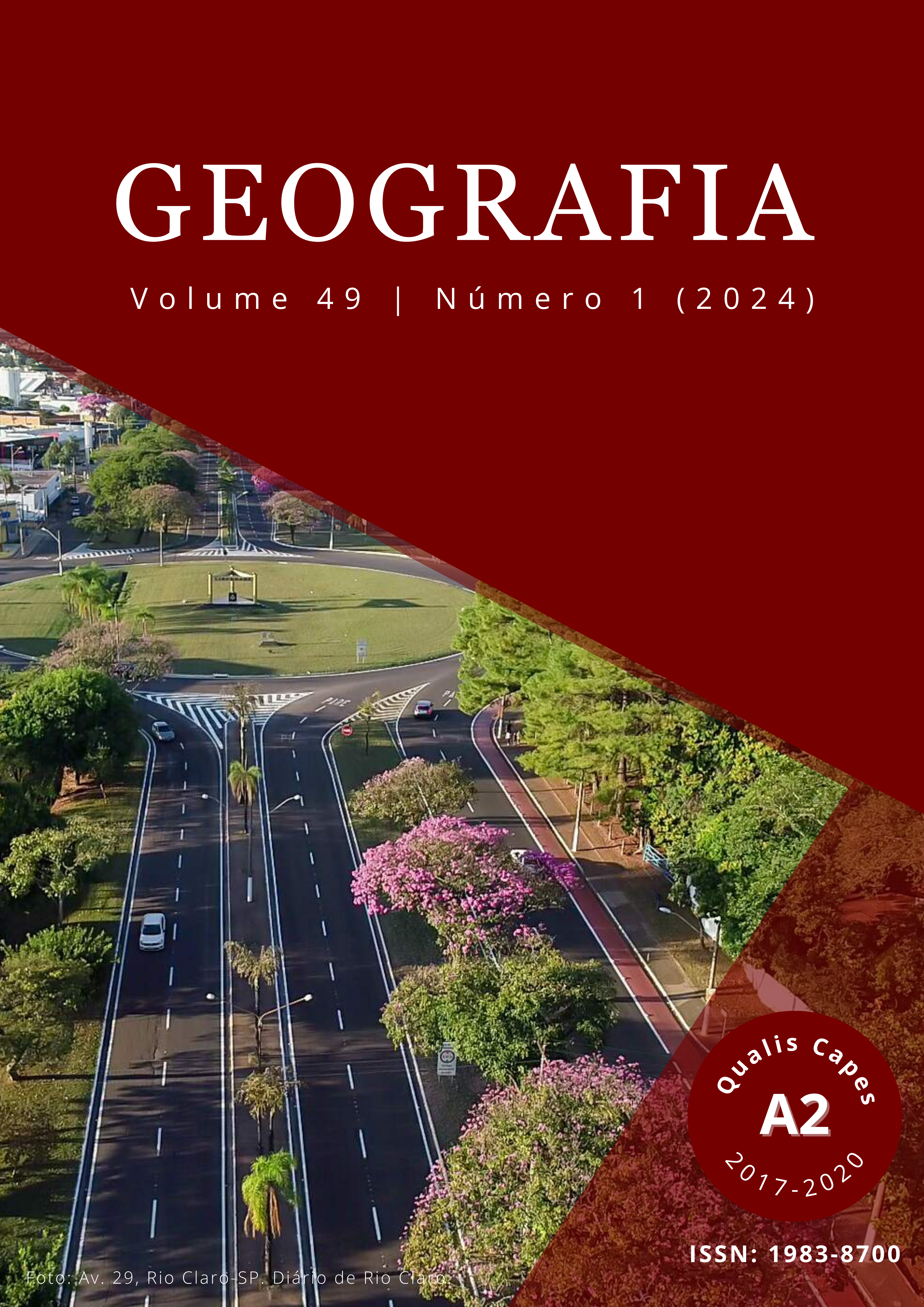Socio-spatial segregation, water insecurity and sanitation: an intersectional view at São Paulo city
DOI:
https://doi.org/10.5016/geografia.v49i1.17975Abstract
The article analyzes the relationship between gender, race, and class intersectionality and basic sanitation, focusing on water insecurity and highlighting socio-spatial and environmental segregation in the city of São Paulo. The justification lies in the fact that socio-spatial inequalities, the fragmentation of care, and the privatization of public services have been making access to basic environmental sanitation increasingly precarious, thus rendering it an urgent matter for discussion. In this article, historical-dialectical materialism was adopted as the theoretical-methodological framework. A qualitative-quantitative analysis was conducted using statistical techniques and geoprocessing. As women are held responsible for reproductive and care work in the family routine, they are more directly and indirectly affected by the illness of family members caused by the lack of sanitation. They are also more affected by water insecurity, as household tasks require water usage. Therefore, socio-spatial segregation and the absence of basic sanitation, determined by ethnic-racial and class markers, predominantly impact Black women, revealing the racist, classist, and patriarchal nature of the socio-environmental inequalities present in urban space in São Paulo
Downloads
Published
Issue
Section
License
Copyright (c) 2024 GEOGRAFIA

This work is licensed under a Creative Commons Attribution 4.0 International License.
The authors maintain the copyright and grant GEOGRAFIA the right of first publication, with the articles simultaneously licensed under the Creative Commons BY 4.0 License, which allows sharing and adapting the articles for any purpose, as long as appropriate credits and provisions of image rights, privacy or moral rights. Other legal attributions can be accessed at: https://creativecommons.org/licenses/by/4.0/legalcode.en.
Geography, Rio Claro, SP, Brazil - eISSN 1983-8700 is licensed under the Creative Commons BY 4.0 License.





